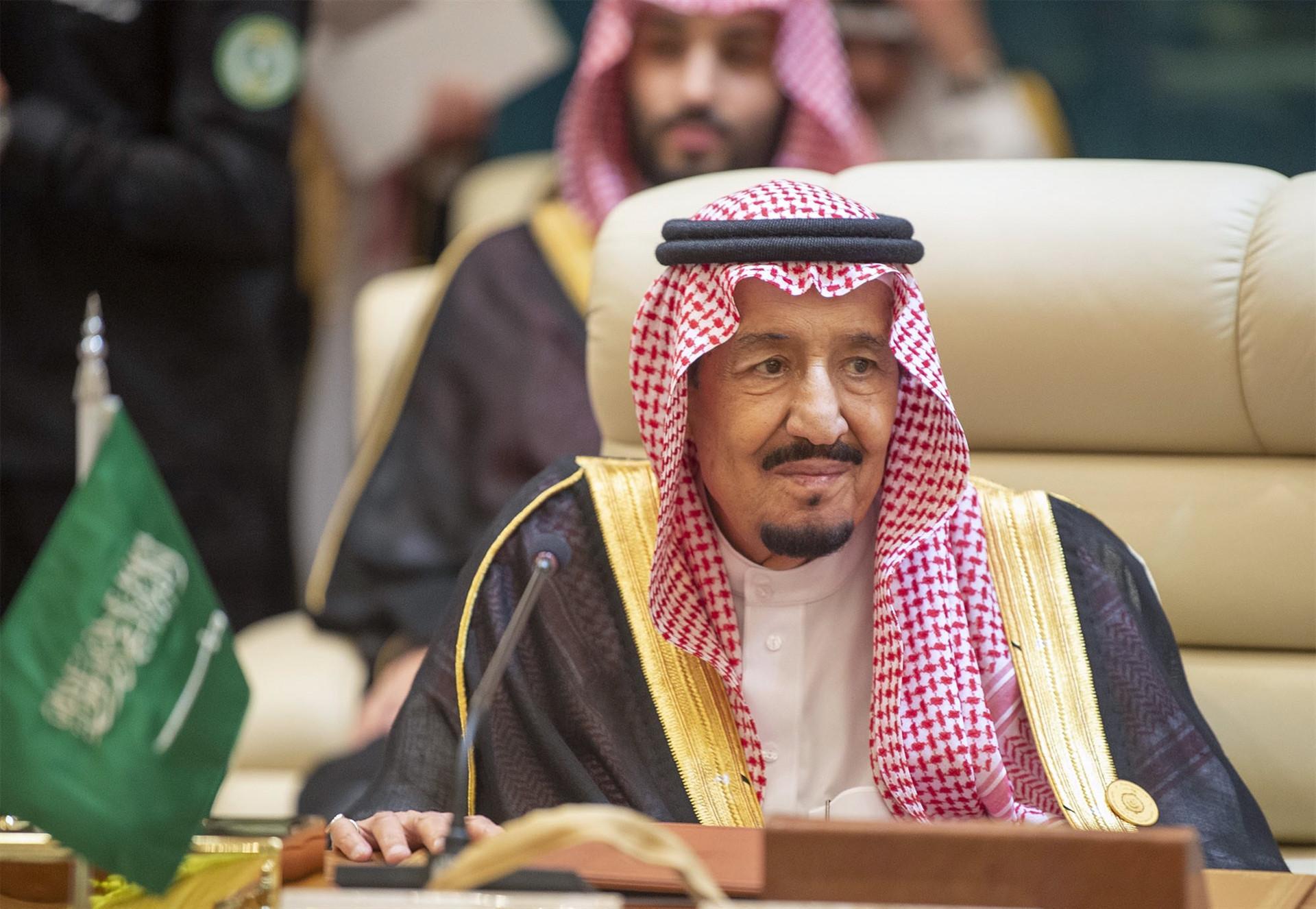
Saudi Arabia's King Salman on May 31 ratcheted up the rhetoric against arch-nemesis Iran, calling on Arab states to confront its "criminal" actions after attacks on oil installations sparked fears of a regional conflagration.
The king's remarks came at the start of two back-to-back emergency summits in the holy city of Mecca, which drew near-unanimous support for the Sunni kingdom from Gulf and Arab states -- with the exception of Iraq.
The summits came a day after hawkish U.S. National Security Advisor John Bolton said Iran was almost certainly behind this month's sabotage of four ships, including two Saudi oil tankers, off the UAE coast. Tehran rejected the charge.
Saudi Arabia, a staunch US ally, also faces stepped-up drone attacks from Iran-aligned Huthi rebels, one of which resulted in the temporary shutdown of a major oil pipeline.
"The absence of a firm and dissuasive response to Iran's acts of sabotage in the region has encouraged it to continue and strengthen them in the way we see today," the Saudi king said.
"Its recent criminal acts... require that all of us work seriously to preserve the security and achievements of GCC (Gulf Cooperation Council)," the king added, referring to the attacks on Gulf oil installations.
The monarch also called on the international community to use "all means" necessary to contain the Shiite power.
Saudi Arabia hosted the summits -- which will be followed by a third meeting on June 1 of heads of state from Islamic nations -- apparently to mobilise efforts to isolate Iran's regime amid fears of a military confrontation.
But Iraq, caught in the middle of its two allies, the U.S. and Iran, opposed a final statement released by Arab countries, which condemned Tehran's behaviour in the region.
Iraq, which has offered to mediate between Washington and Tehran, recently warned of a risk of war amid escalating tensions.
On the eve of the summits, Riyadh blasted what it called Iranian “interference” across the region and demanded “firmness” over attacks on Gulf oil tankers and pipelines.
Tensions in the region spiked after the four ships were damaged in a mysterious sabotage attack off the coast of the emirate of Fujairah on May 12.
The vessels were attacked using “naval mines almost certainly from Iran”, Bolton told a news conference in Abu Dhabi on May 29.
Iran rejected the accusation, calling it “laughable”.
U.S. experts are part of a five-nation team investigating the ship attacks.
Stepping up the war of words on May 30, U.S. Secretary of State Mike Pompeo said that Iran was trying to raise global energy prices through the attacks on oil installations.
The U.S. has beefed up its military presence in the region, with the deployment of an aircraft carrier, B-52 bombers and 1,500 additional troops.
Bolton however said the extra U.S. forces were sent to the Middle East as a “deterrent” and that Washington's response would be prudent.
“We definitely desire a change in the (Iranian) regime's behaviour,” Brian Hook, U.S. Special Representative for Iran, said on May 30.
Regional tensions have grown since U.S. President Donald Trump's administration reimposed sanctions against Iran after Washington unilaterally pulled out of a multilateral 2015 nuclear accord signed with the Islamic republic.
But Trump appeared to soften his hawkish tone towards Tehran, saying during a visit to Japan on May 27 that his government does not seek "regime change.”